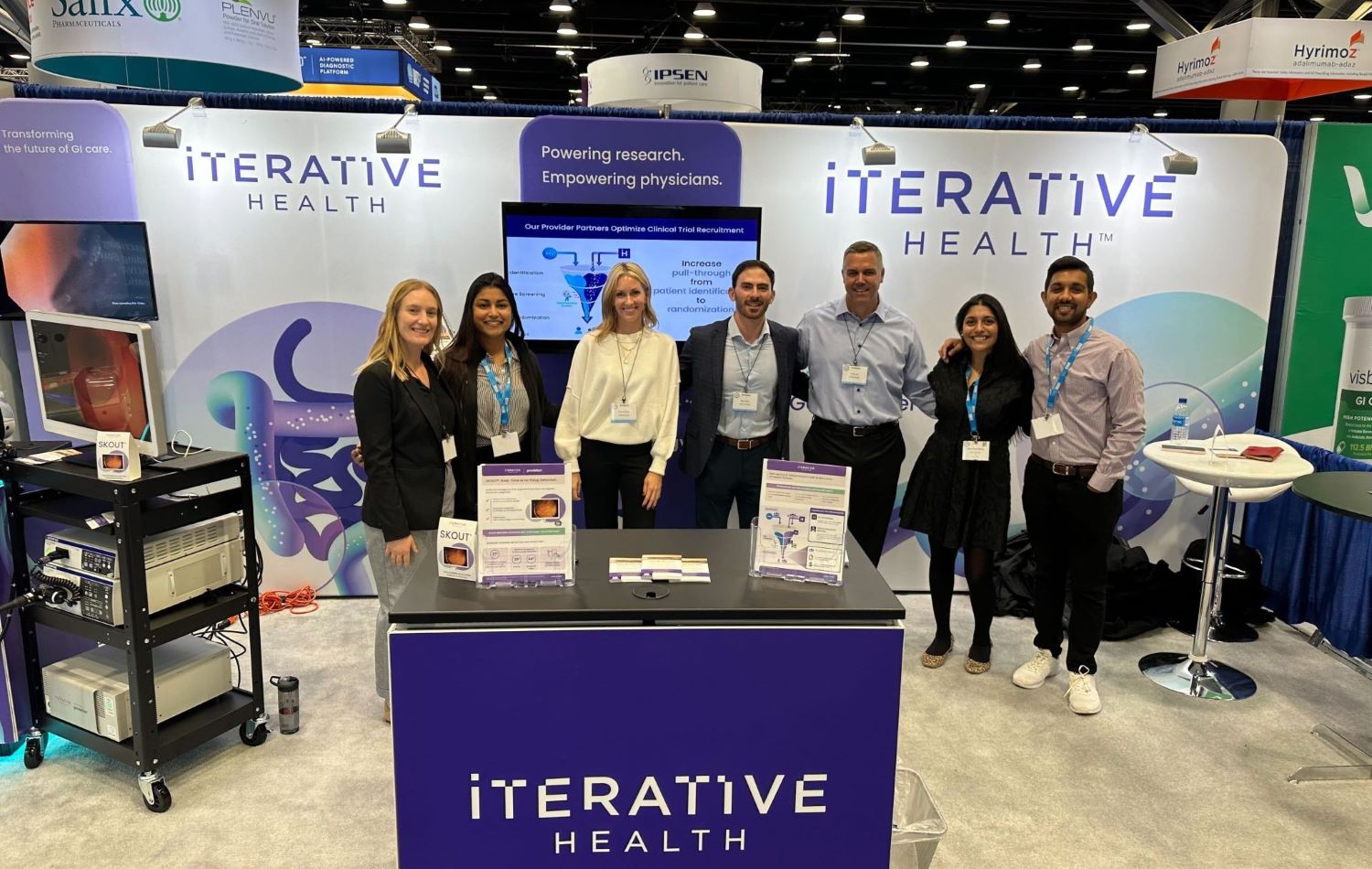Pioneering Precision in GI Medicine: Iterative Health’s Bold Initiative
In the world of cancer detection and treatment, particularly within gastroenterology (GI), there exists a significant opportunity for advancements that enhance accuracy and patient outcomes. Conventional methods often struggle to deliver precise diagnoses and tailored treatment plans, highlighting the need for innovative solutions.
Iterative Health, originating from MIT, recognizes the urgency to address these challenges. The company focuses on integrating artificial intelligence (AI) into precision medicine to improve cancer care practices.
With a diverse team of experts, Iterative Health develops diagnostic kits powered by AI algorithms.
Dr. Jonathan Ng: From Medical Missions to Pioneering Healthcare Innovation
First, let’s take a closer look at the founder of Iterative Heath, Jonathan Ng.
His journey began unexpectedly during a medical mission trip to Cambodia, a pivotal moment that ignited a passion for addressing the profound healthcare disparities plaguing the region.
“Since I got my start in healthcare pretty early on, just by chance, I happened to visit Cambodia. For context, I’m pretty much first-generation college, and no one in my family had doctors. But I was fortunate to receive mentorship from my friend’s dad, who was a doctor. He’s like, ‘You know, John, can you come to Cambodia and carry my bags? Going on a medical mission.’ It happened to be on that trip, and that was my first experience of healthcare outside of Singapore,” Jonathan said.
Moreover, witnessing firsthand the aftermath of the Khmer Rouge regime, where intellectual elites were systematically targeted, he confronted the harsh reality of a healthcare system in shambles.
In a country struggling to recover from its tumultuous past, Dr. Jonathan encountered a healthcare landscape marred by scarcity, where basic medical necessities were often luxuries. The staggering under-five mortality rate and pervasive lack of access to essential services underscored the gravity of the situation and fueled Dr. Jonathan’s determination to effect meaningful change.
“It was pretty shocking how the state of healthcare was back then. It was, back then emerging from the Khmer Rouge, from the pop-up regime, and it was failing at a very fundamental stage,” Jonathan said.
“There were basically two doctors left in the country serving patients, and for a population of 12 million people because the community said that the best way to prevent an uprising against them was to kill off all the intellectual people. And so, I arrived in the country. They observed how kids were not making it through for really basic reasons, right? And back then, the under-five mythology rate was about 20-25 percent, and I was like, this is totally unacceptable,” he added.
In collaboration with local stakeholders and international partners, he spearheaded initiatives to establish pediatric hospitals, surgical units, and training programs aimed at building Cambodia’s healthcare infrastructure from the ground up.
“I end up in a deep rabbit hole, end up spending about 14 years in Cambodia, building all kinds of facilities, open its first pediatric cardiothoracic surgery units, neonate towards but in some reconstructive units, getting involved in a couple of establishments, establishing a couple of pediatric hospitals in rural Cambodia,” Jonathan stated.
“We were trying to train Cambodia’s first generation of surgeons, and I would frequently bring in, my best tutors from Singapore, from the US, from, places like the Brigham Boston Children’s Hospital, and bring them into to try and empower knowledge,” Jonathan said.
Despite significant progress, Dr. Jonathan encountered persistent challenges that exposed critical gaps in clinical expertise and diagnostic accuracy.
The frustration of witnessing missed diagnoses and suboptimal treatment outcomes became a catalyst for introspection, prompting him to seek innovative solutions capable of transcending conventional barriers.
“Obviously, I’m lacking all these other details because I’m not as experienced, I’m not as good. And then there was a surgeon of trying to train, and he would be like, “Where’s the tumor?” And we were like, “Oh damn, if you’re not even seeing it, if you’re not even identifying it, you can’t treat it right,” said Jonathan.
It was during this period of reflection that Dr. Jonathan recognized the transformative potential of technology, particularly artificial intelligence, in revolutionizing healthcare delivery. Inspired by his experiences and fueled by a deep-rooted commitment to improving patient care, he made the bold decision to pursue advanced studies at MIT, a renowned hub of innovation and forward thinking.
At MIT, Dr. Jonathan immersed himself in a dynamic ecosystem of interdisciplinary collaboration and cutting-edge research, laying the groundwork for what would eventually become Iterative Health.
The Calculated Decision to Enter Gastroenterology
Iterative Health’s foray into the field of GI, despite other familiar domains like plastic surgery, orthopedics, and cardiology, stemmed from a convergence of strategic considerations and practical insights.
First and foremost, the collaborative and receptive nature of gastroenterologists played a pivotal role in the company’s decision.
“I think GI doctors are awesome to work with. I think when you deal with poop and stool all day, I think they just can’t take themselves too seriously, and it’s just played out. So, we all know start-up as a grind, we all know trying to innovate the grind, and you really want to go through that grind with people you enjoy working with,” Dr. Jonathan Ng noted.
Moreover, the visual nature of gastrointestinal diseases, coupled with the inherent use of endoscopic cameras in gastroenterology procedures, presented a unique opportunity for Iterative Health.
Unlike other specialties where visual assessment may not be as central, the natural alignment of gastroenterology with visual diagnostics made it a fertile ground for leveraging AI-powered technologies.

Furthermore, Dr. Jonathan recognized the potential for addressing healthcare disparities and improving outcomes in gastroenterology. By applying advanced technology to close gaps in diagnosis, treatment, and monitoring, Iterative Health aimed to make meaningful strides in patient care within the gastroenterology domain.
While the company’s vision extends beyond gastroenterology, its initial focus on this field reflects a strategic alignment of specialties where innovation can thrive and where the potential for impact is significant.
“I think, we are from the very get-go, and so today I have a broad mandate, I have a broad vision, but in terms of using this technology to close in on disparities and healthcare outcomes, and I think that accounts for what alluded to, a lot of our successes. I think many people see this potential as well,” said Jonathan.
More remarkably, Iterative Health’s differentiation lies in its deeply rooted vision and purpose. Unlike some competitors who may focus primarily on increasing sales or expanding their product offerings, Iterative Health places a strong emphasis on addressing health disparities and improving healthcare outcomes.
The founder emphasizes that their vision is not solely about developing and selling AI and GI solutions, but rather about using these technologies as practical tools to achieve tangible improvements in healthcare delivery.
“I think the biggest differentiator we have is really the vision behind where and why we’re doing this, right? I think that will eventually we keep doubling down on why and we’re doing this in terms of reducing health disparities and healthcare outcomes,” said the CEO.
By maintaining a clear focus on reducing health disparities and enhancing healthcare outcomes, Iterative Health aims to carve out a unique space in the market.
The founder’s perspective suggests that every decision made at Iterative Health is driven by this fundamental purpose. This commitment to a higher mission sets Iterative Health apart from competitors and guides the company’s trajectory in a distinct direction.
Furthermore, Iterative Health’s approach to utilizing AI and GI technology is described as practical and remote, suggesting a hands-on, accessible application of these tools in healthcare settings. This practicality likely enables Iterative Health to offer solutions that are directly applicable to addressing real-world challenges in healthcare delivery.
“We have a very practical, remote take on the application of the AI and GI, and I think eventually that just leads us into more differentiated space, a slightly different angle than, say, someone who’s trying to just, some more snares or trying to do it for, maybe sell more SAS products. I’m not sure. I think for us, the fundamental reason is very critical, and it’s what drives every single decision we make here at Iterative,” Jonathan shared.
Beyond Diagnosis: Iterative Health’s Core Products Shaping the Future of GI Healthcare
Iterative Health continues to spearhead innovations in the field, maintaining its focus on core products: Clinical Trial Optimization, SKOUT, and AI Documentation.
Iterative Health’s Clinical Trial Optimization solution represents a paradigm shift in the realm of medical research, offering a transformative approach to enhancing the efficiency and effectiveness of clinical trials, particularly in the field of inflammatory bowel disease (IBD).
With a commitment to precision and innovation, Iterative Health’s Precision sites have demonstrated a remarkable capability to accelerate the pace of clinical research. Through proprietary methodologies, precision sites achieve a threefold increase in randomization rates compared to traditional sites.
This exponential improvement significantly streamlines the recruitment process, expediting the identification and enrollment of qualified patients for IBD clinical trials.
At Iterative Health, clinical research is a multifaceted endeavor that demands careful management of time and resources. Clinical Trial Optimization solution is designed to maximize the benefits of research efforts, allowing sponsors and research teams to optimize their return on investment and accelerate the pace of medical innovation.
SKOUT, another flagship product, has received FDA 510(k) clearance and represents a significant advancement in colorectal cancer screening and surveillance.
Utilizing cutting-edge computer vision technology, SKOUT enhances the detection of suspicious tissue during colonoscopies, leading to improved adenoma detection rates compared to standard procedures. Its clinical trial results demonstrate a substantial increase in adenoma detection, showcasing its potential to enhance patient care and outcomes.
“The colon has many challenges. Things can hide, and some polyps are hard to detect. SKOUT is enhancing our colonoscopy technology by allowing us to do the same thing but in a more effective way,” said Aasma Shaukat, MD, MPH at NYU Grossman School of Medicine & SKOUT clinical trial investigator.

Additionally, Iterative Health is developing AI Documentation, a solution aimed at providing detailed and accurate procedure documentation for gastroenterologists. This collaborative effort with Provation, a leading provider of clinical productivity solutions, aims to streamline documentation processes, allowing physicians to focus more on patient care.
“Iterative Health is the next evolution for our team,” said Jonathan Ng, founder and CEO of Iterative Health. “While we will not stray from our roots, this rebrand highlights our mission to create a scalable, more equitable approach to GI care. Our application of advanced machine learning and computer vision is wide-reaching and will ultimately bring better diagnostics and health outcomes for patients. We believe our brand reinforces our commitment to establishing a new standard of care for patients through AI technology.”
Secures $150M in Series B Funding: A Catalyst for Advancing Gastroenterology Healthcare
In 2022, Iterative Health has secured a substantial $150 million in Series B financing. Co-led by Insight Partners and Clearlake Capital Group, L.P., alongside returning investors Obvious Ventures, Johnson and Johnson Innovation-JJDC Inc., Eli Lilly, Breyer Capital, and other esteemed industry and financial leaders, this funding round underscores the remarkable trajectory of Iterative Health.
This latest funding milestone follows closely on the heels of a successful Series A round, where Iterative Health raised $30 million in August 2021, bringing the total raised in 2021 to an impressive $182 million.
Jonathan Ng expressed gratitude for the strong investor confidence in the company’s strategy.
“This robust financing comes on the back of an incredibly successful year at Iterative Scopes, reflecting the strength of our technology, team and strategic partnerships. With this investment round, we are relentless in our drive towards narrowing disparities in patient outcomes through the use of artificial intelligence, starting with inflammatory bowel disease and colorectal cancer,” said Jonathan Ng.
“The network and support of top tier global investors like Insight Partners and Clearlake Capital alongside our existing investors like Obvious Ventures, JJDC and Eli Lilly will serve to power our progress towards bringing the most advanced computation technology solutions to a field that has significant unmet need,” he added.

Lonne Jaffe, Managing Director at Insight Partners, emphasized the transformative potential of Iterative Health technology in enhancing gastrointestinal patient care. By harnessing the power of artificial intelligence, Iterative Health aims to streamline diagnostic processes, reduce interpretation errors, and expedite clinical trials, ultimately improving healthcare outcomes for patients.
Behdad Eghbali, Co-Founder and Managing Partner at Clearlake, said, “We are proud to invest behind Jon and the management team, validating the Company’s accelerating growth and strategy to address the current problems in the care of gastrointestinal disease,”
Iterative Health’s innovative software and computer vision technology, powered by AI and machine learning, hold the promise of revolutionizing healthcare outcomes in gastroenterology for the benefit of all stakeholders.
The infusion of new funding will enable Iterative Scopes to accelerate the development of AI technology products and services.
Fostering Innovation in Gastrointestinal Medicine: Strategic Collaborations
Recently, Iterative Health’s strategic collaborations with leading healthcare organizations like Gastro Health and the Florida Research Institute (FRI) serve as instrumental drivers for the enhancement and expansion of its innovative precision-medicine technologies in gastroenterology.
Gastro Health, renowned as one of the largest national medical groups specializing in digestive and liver health, boasts an extensive network spanning seven states and comprising over 380 physicians and 150 locations.
Leveraging Iterative Health’s expertise in advanced artificial intelligence tools, Gastro Health aims to enhance its clinical research capabilities and streamline trial recruitment efforts. With a focus on improving GI care, Gastro Health recognizes Iterative Health as a strategic partner in driving efficiencies and increasing patient access to cutting-edge therapies.
Through the integration of AIR technology, Gastro Health physicians can standardize the endoscopic scoring process, thereby identifying eligible trial patients more efficiently. This collaboration not only optimizes patient screening and identification but also sets the stage for future innovation in gastrointestinal care.
Moreover, Iterative Health’s collaboration with the Florida Research Institute (FRI) further underscores its commitment to democratizing access to new IBD therapies. By introducing AIR technology in the Florida region, Iterative Health and FRI expedite patient recruitment to clinical trials, standardize endoscopic scoring processes, and facilitate better access to accurate therapeutics.
Together, Iterative Health and FRI aim to advance treatments for inflammatory bowel disease and ensure that patients receive the highest standard of care, irrespective of their location.









